It has now emerged that the mosque in question, attached to the Islamic Cultural Centre Norway, has links to the extreme Pakistani political party Jamaat-e-Islami - nor has it ever made a secret of this fact.
Here is some information on the party and its aims from Wikipedia:
The JI envisions an Islamic government in Pakistan governing by Islamic law. It opposes Westernization — including capitalism, socialism, secularism or such practices as bank interest, and liberalist social mores.[2]
JI stated means to power is by peaceful methods — "We have to convince the people that a ‘Bloody Revolution’ is a path leading to destruction and the ‘Islamic Revolution’ is the path ensuring true change and deliverance."[3] It seeks to convert members of the Pakistani elite to its cause and "exercising influence in all branches of Pakistani society".[4]
JI advocates the use of the Pakistani army to separate the predominately-Muslim province of Kashmir from India, and its president has called for a base-camp for the jihad in Indian-administered Kashmir.[5] Insinuations of links between JI and al-Qaeda have also been alleged. [6]
Islam in Europe has the full report, translated from Aftenposten:The Islamic Cultural Center mosque has never hidden where they get their ideological inspiration: from Jamaat-e-Islami in Pakistan, an organization considered to be an extreme group on the extremist side of the religious and political landscape.
When the Norwegian royal family wanted to visit a Muslim community in Norway for the first time ever Monday, they chose the Islamic Cultural Center. It's unclear if Queen Sonja was aware of the links between the Islamic Cultural Center in Oslo and religious extremist groups in Pakistan.
Spokesperson at the palace Sven Gj. Gjeruldsen says that the Queen was there after having received an invitation to open an exhibition, and added that generally that Royal family doesn't comment on the reasons for their appearances.
Per Sandberg, Deputy head of the Frp (Progress Party), thinks the royal family can naturally visit whomever they want. But, he says, he would have wished the queen didn't legitimize a mosque with radical attitudes. She could have visited a mosque with moderate points of view. It's a paradox that so many Muslims in Norway follow radical movements within Islam after they come to Norway.
Laila Bokhari, researcher at the Norwegian Institute of International Affairs, says that Jamaat-e-Islami is a fundamentalist and conservative movement. One of the movement's top leaders, Qazi Hussain Ahmad, is, at best, unclear about his attitude towards al-Qaida and Osama bin Laden, according to Bokhari.
Ahmad was invited by the Islamic Cultural Center in Oslo in 2004 to give a speech. Fahrat Taj, originally from Pakistan, is writing a doctoral dissertation on human rights and Islam. She say that the Islamic Cultural Center, via its ideological links to Jamaat-e-Islami in Pakistan, puts itself on the fundamentalist wing.
Taj says that in Pakistan Jamaat-e-Islami is considered to have connections with al-Qaida. It's typical that Jamaat-e-Islami is now one of three political groups who don't support the army's operations against extremism in the Swat area.
According to the Pakistani press, around 1990 Qazi Hussain Ahmad has several meetings with bin Laden. After the terror attack against the US on September 11, 2001, he said the Jews were responsible. When one of the top leaders of al-Qaeda, Khalid Sheikh Muhammad, was arrested in 2003, he was found in the home of then important member of Jamaat-e-Islami. Several experts consulted by Aftenposten emphasize, however, that Jamaat-e-Islami was never a part of bin Laden's terrorist network.
Mehboob ur-Rehman, an imam at the Islamic Cultural Center, sits on the European Fatwa Council headed by Egytpian Yusuf al-Qaradawi. Earlier this year al-Qaradawi congratulated Adolf Hitler for punishing the Jews during WWII.
Jamaat-e-Islami was founded in British India in the 1940s and is based on the ideas of Sayyid Maududi. The main idea was an Islamic state which will be pure of Western influence. At the end of the 1970s, Jamaat-e-Islamic was a mainstay for Zia ul-Haq's ultra-reactionary regime, which introduced Islamic law in large parts of Pakistani society.
Jamaat-e-Islamic and the Islamic Cultural Center threaten women's rights, thinks Hege Storhaug, spokesperson for Human Rights Service.
"Queen Sonja could hardly have been aware of which ideological platform ICC supports when on Monday she, with a scarf over her head, spoke to the sex-segregated assembly," she says.
Storhaug points out that ICC's ideological leaders is Sayyid Maududi. He particularly infamous for the book "Purdah and the Status of Women" from 1939. It degrades women to second-class citizens. He writes that women's eyes are an 'erogenous zone' that can lead to adultery. The same holds for a woman's voice, which Maudud characterizes as 'agent of the devil'.
She refers to an article in Aftenposten from 2004 where the Islamic Cultural Center proposed polygamy. Even after Aftenposten's revelation the pamphlets were available in ICC's premises.
Storhaug says that it involved a careful defense of man's right to have four wives.
The Islamic Cultural Center (ICC) sees in Jamaat-e-Islami a religious and ideological starting point.
"Yes, it's correct that we see in Jamaat-e-Islamic our source of inspiration," says a spokesman.
ICC is an independent community in Norway without organizational links to Jamaat-e-Islami in Paksitan. But when ICC sends humanitarian help, the money goes through organizations related to Jamaat-e-Islami.
Q: Five years ago the ICC in Oslo invited Jamaat-e-Islami head Qazi Hussain Ahmad. What position do you take to Ahmad's points of view on Osmaa bin-Laden?
A: "The opinions on Osama bin Laden are his personally. We invite many, and they all get to promote their points of view," the mosque answers.
Q: Is it relevant to reconsider membership in the European Fatwa Council after president Yusuf al-Qaradawi's honoring of Adolf Hitler?
A: "No, it's not relevant at all. In the Fatwa Council there are members with many different opinions. What they do there, is to discuss the problems Muslims meet in their every day lives."
Hat tip: Islam in Europe.
.jpg)

















































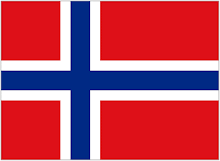
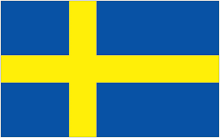






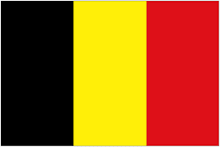

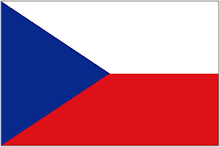











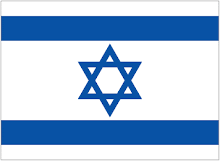




No comments:
Post a Comment